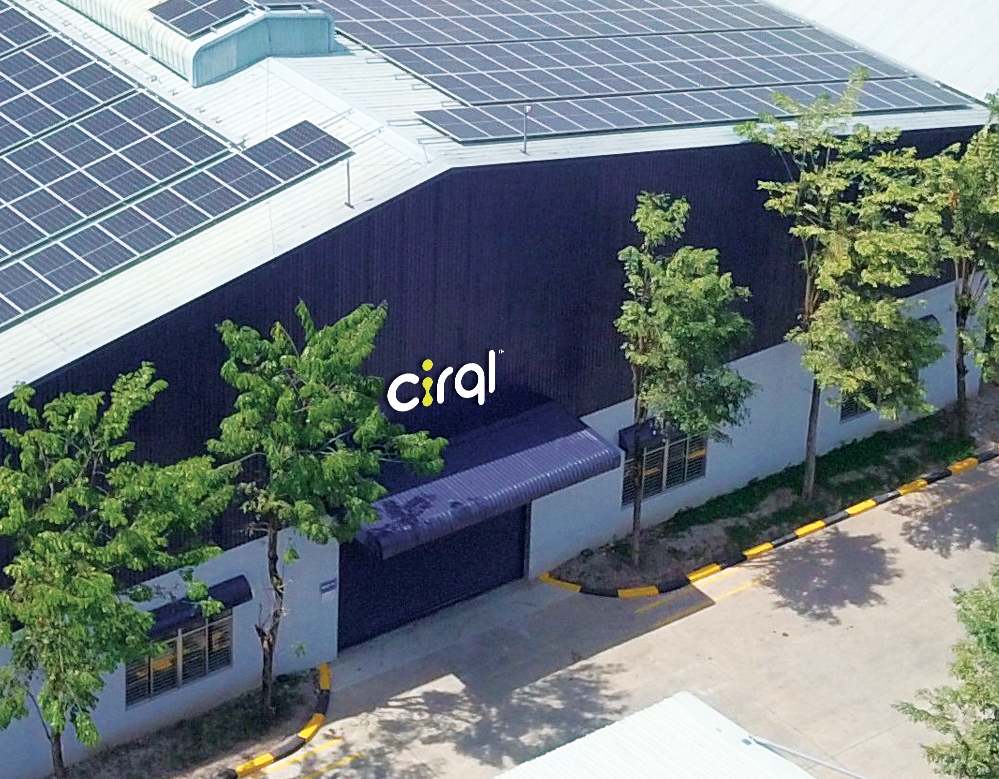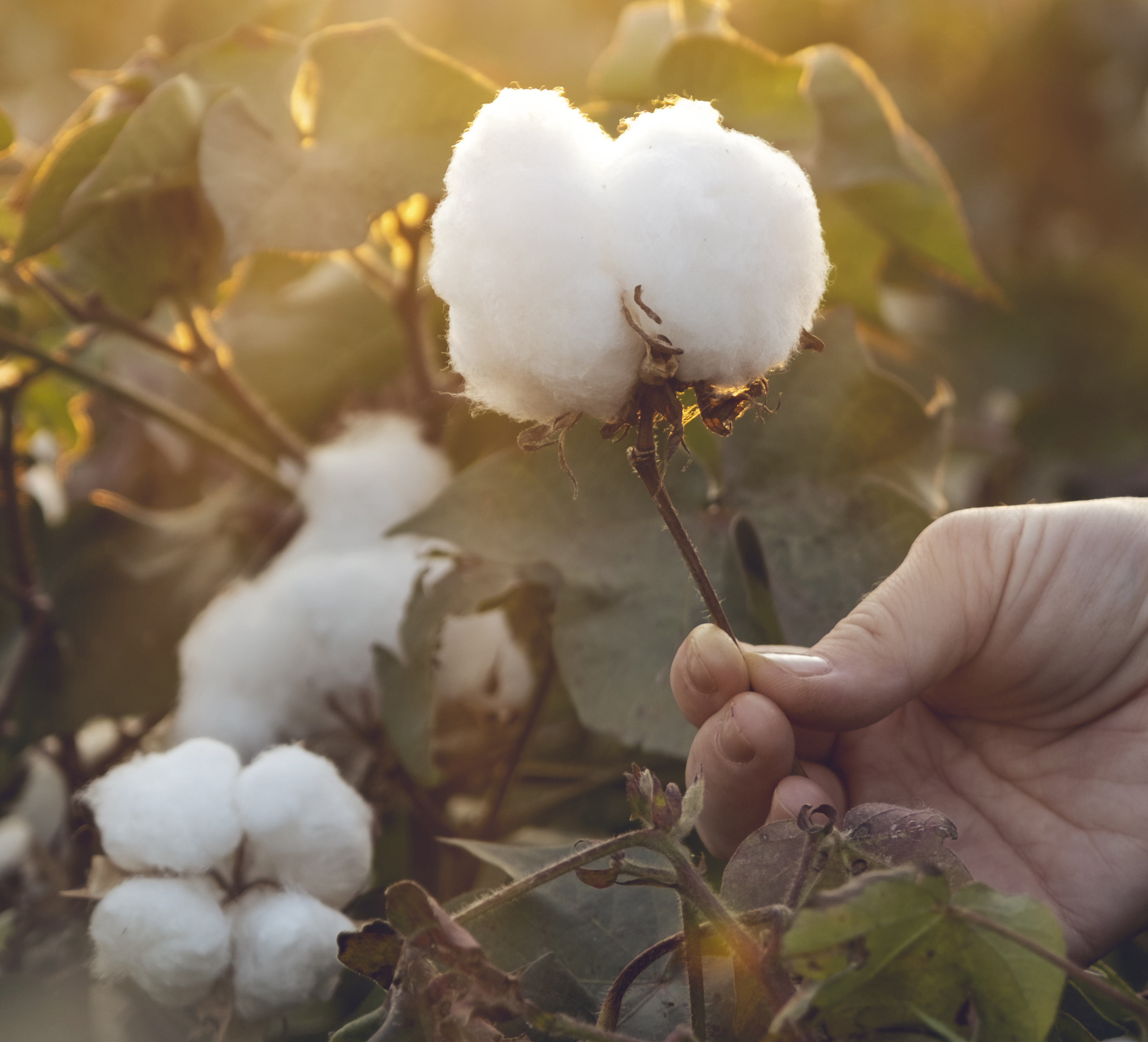
In an industry facing unprecedented regulatory demands, companies are working harder than ever to meet legal requirements, on top of consumer expectations. Brands are leaning – and depending – on suppliers to help navigate these rough waters.
CEO Steven Ackerman explained that CovationBio prides itself on “working with forward-thinking value chain partners to globally push the boundaries of innovation and sustainability to deliver high-performance biomaterials at scale.” Earlier this year the firm introduced CovationBio bioPTMEG, which is a 100% bio-based polytetramethylene ether glycol which is high performing with a lower environmental impact than petroleum-based offerings. Its drop-in performance allows downstream to switch to bio-based raw material without major process change.
As Australia-based next-gen material firm Celys works to scale its certified compostable polyester by integrating it into existing global textile supply chains, the company is also pushing to advance low-impact end-of-life – including enzymatic recycling and composting pathways. This entails working with yarn spinners, mills and brands; plus looking at big picture solutions – like current research exploring the conversion of textile waste into sustainable aviation fuel and by launching the Intimiti Sustainability Academy (ISA) to create “a collaborative platform bringing together pioneering brands, innovators and academics to solve systematic sustainability challenges, from microplastic elimination to circular design and sustainable materials,” according to Celys COO Eric Yip.

Cirql works to bring less impactful materials to the footwear industry that deliver on performance and are ready to scale globally. “Our products are designed for true circularity: because our polymers are not crosslinked, every item has a defined end-of-life solution—they can be recycled or industrially composted,” noted Matt Thwaites, GM at Cirql. The company’s Cirql rTPU50 is made with 50% GRS-certified post-industrial recycled TPU and Super Critical Fluidity foaming (a technology that uses natural gases to foam midsole products). “We operate a chemical free process as well as the functionality to co-mold an outsole to a midsole to remove the entire gluing process in footwear,” the exec explained.
Brookwood’s STORM-TECH ZERO is a waterproof, breathable and windproof laminate made with no intentionally-added PFAS. The three-layer laminate resulted from the firm’s sustained R&D efforts to address PFAS concerns in the marketplace.

Textile-to-Textile Recycling
PrimaLoft’s innovation pipeline starts with recycled content as a baseline for product development. Currently 70% of its insulation product portfolio is made using 100% recycled material. Beginning in Fall 2025, the firm will launch PrimaLoft ReRun, using mechanical and regenerative recycling processes to remake textile waste into PrimaLoft insulation.
“The mechanical process reclaims discarded textiles that are shredded and blended with PrimaLoft fibers to create unique insulation products,” explained PrimaLoft CEO Anne Cavassa. The first product using this process is ThermoPlume PrimaLoft ReRun, “a loose-fill insulation blend that provides flattering, down-like loft for versatile styling.” It’s composed of 100% recycled content, with 30% coming from mechanically recycled, pre-consumer footwear uppers.
Meanwhile, the regenerative process breaks down discarded textiles and remakes them into insulation. Silver PrimaLoft ReRun features soft, fine fibers that provide thermal efficiency for lightweight warmth and versatility. It delivers high performance and is made with 100% recycled content, including 50% regeneratively recycled textiles. “This ability to meet the same performance standards as virgin material or rPET sourced from plastic bottles gives us hope that textile-to-textile becomes the next frontier in recycling, further reducing environmental impact within our industry,” Cavassa concluded.

Burlington Fabrics recently developed textile-to-textile recycling offerings for is Barrier Medical & Cleanroom business. Traditionally, this market relied on virgin polyester, but demand is growing for alternatives beyond recycled plastic bottles. “Our new products are in testing to meet EN13795 and FDA 510K requirements, with the goal of offering reusable gowns that can deliver 75–100 uses before being retired, donated, repurposed, or recycled—extending product life and reducing waste,” shared Burlington’s Andrew Hicks, director of sales performance apparel – Elevate Textiles.
Hyosung recently announced a strategic alliance with Loop Industries to expand access to circular polyester through textile-to-textile supply chains. Simon Whitmarsh-Knight, Hyosung TNC Global Sustainability Director for Textiles, commented that “This alliance combines Loop’s Infinite Loop depolymerization technology and Hyosung TNC’s industry-leading expertise in advanced textile materials to help brands transition from fossil and bottle-based polyester, to next-generation circular materials.”
Loop transforms low-value textile waste into Twist, its branded polyester resin that is 100% recycled, fully traceable, and specifically designed for the textile industry, offering virgin-quality performance with a reduced environmental footprint. Hyosung TNC converts this material into performance yarns in its regen brand portfolio.

Counting on Cotton
When it comes to natural fibers, cotton producers are making continuous improvement in growing practices and technologies designed to improve yield, quality, resilience, soil health and overall footprint.
In a recent webinar titled “Circular Solutions for Cotton: Turning Textile Waste into Environmental Benefits”, Cotton Incorporated Chief Sustainability Officer Jesse Daystar, Ph.D., noted that recycling may have more environmental impact than growing cotton due to the energy-intensive process of recycling synthetics and potential release of microplastics. “Cotton sequesters carbon during growth, keeps it captured in textile form through innovative recycling methods like converting cotton waste to biochar, and can further reduce its environmental impact,” he noted.
Biochar and the carbon removal market are hot topics, with firms including Google, Meta, Microsoft and McKinsey & Company buying credits to offset energy consumption of AI-driven data centers.
Biochar is made by heating cotton textile waste without oxygen, creating a charcoal-like material that locks in carbon, keeping it out of the atmosphere. Waste is converted into a useful soil additive instead of sending it to a landfill. “Cotton-based biochar provides a sustainable path toward reducing pollution and enhancing the circularity of cotton products,” the exec concluded.
Where Does Sustainability Rank in Purchasing Decisions?
“Today’s consumers are more mindful of how products are designed and made. In the outdoor industry especially, they expect mission-driven brands to use sustainable practices across the supply chain—without compromising performance.” -Anne Cavassa, CEO, PrimaLoft
“The product has to perform, before any additional sustainability benefits such as recycled content or lower carbon emissions can be realized. We are certainly seeing some headwinds in recent months given the complex geo-political situation and cost of living challenges. However, we are in this for the long term.” -Simon Whitmarsh-Knight, global sustainability director for textiles, Hyosung TNC
“The global footwear industry is navigating an unprecedented regulatory environment, marked by stringent compliance demands and new legislation defining sustainability standards for product and messaging. Regulatory change will affect more purchasing decisions by the consumers and footwear brands.” - Matt Thwaites, VP & GM, Cirql
“We know that we must affect the mindsets and behaviors of the end consumer if they are going to make the more sustainablechoice with their wallets. Part of what we hope to convey is the idea of driving a more circular economy by purchasing garments that last longer.” - Kurt Rupprecht, global business director, CovationBio
“Sustainability has evolved from a ‘nice-to-have’ to a key decision driver. Five years ago, recycled content alone was enough; now buyers are asking deeper questions about microplastics, compostability, and true circularity.” - Eric Yip, COO, Celys
“Sustainability is top of mind at every product presentation and trade fair, with carbon neutrality as the resounding theme. Sustainability is a core driver in purchasing decisions, right alongside innovation and heritage—our three guiding pillars.”
- Andrew Hicks, director of sales for performance apparel– Elevate Textiles, Burlington Fabrics


.svg)